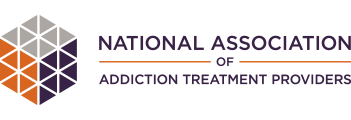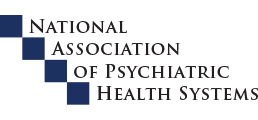Sierra Tucson offers effective, comprehensive treatment for individuals in relapse from alcohol addiction.
Understanding Treatment
Understanding alcohol addiction treatment & long-term sobriety
Finding the courage to seek out and participate in treatment can be a livesaving choice for individuals who wish to cease their dependence on alcohol. And while many options exist for care, the decision to enter a treatment facility requires an incredible amount of bravery and resolve. The road to recovery is paved with challenges, and a fear of the unknown. Tantamount to these fears is the worry of relapse, and addicted individuals may worry about how they will manage the temptation to drink once they are discharged from their residential treatment center.
While newfound sobriety is an achievement to be celebrated, it is also critical to plan ahead during this transitional phase. Once one is discharged from residential treatment and is ready to step down their level of care, it will be important to rely on a compressive aftercare plan that is designed to help them maintain their sobriety. Follow-up supports can take many forms, and can be tailored to the individual’s needs, strengths, and long-term goals.
Why Do People Relapse?
Reasons why people relapse from alcohol addiction
For individuals who do not have personal experience with addiction, the concept of relapse may be difficult to understand. From the outside, it may be hard to watch someone who has worked so hard to achieve sobriety falter and begin to drink again. But it should be noted that relapse, while frustrating, need not mean the end of sober living. During treatment, an aftercare plan should be created that identifies an individual’s triggering people and situations so that they can avoid those stressors if at all possible. The following briefly describes some of the common factors that may trigger a relapse:
- An unexpected stress at work, at home, or school
- Boredom
- Overestimating one’s control over their ability to stop drinking after just one drink
- Feelings of anxiety, depression, or symptoms of a co-occurring mental illness
- Exposure to places or situations where one had formally engaged in unhealthy drinking
- Pressure from individuals with whom one drank in the past
- A lack of certainty about the decision not to remain sober
As one transitions back to their home and community, the above scenarios are likely to be encountered. It is for this reason that extensive aftercare planning can be critical in preventing the relapse that could undermine so much of the hard work done in treatment.
Preventing Relapse
How to prevent alcohol addiction relapse
Relapse should not be equated with failure or weakness, but rather as evidence of the severely addictive properties that alcohol holds for some individuals. Quality treatment centers begin planning for a resident’s discharge soon after their arrival because they know that follow-up care is critical for a sustained recovery. The following briefly describes some of the tools and skills that are often recommended in preparing an individual to step down their level of care:
- When preparing to leave residential treatment, be sure that you have a thorough aftercare plan in place and that you understand the next steps as you discharge.
- Use supportive friends and family as resources when you feel tempted to drink. They can provide a listening ear as well as accountability.
- Join a local support group such as Alcoholics Anonymous (AA) where you will meet others who are facing similar challenges.
- Stay in close contact with your sponsor, and if you do not have a sponsor, takes steps to seek one out.
- Make time each day to practice the coping skills you learned in treatment, and be on the lookout for new ones that may help you.
- Practice diligent self-care, and make your health a wellbeing a priority.
- Make a daily schedule and stick to it, routine can be useful in managing your time and meeting your goals.
- Avoid people, places, and situations that will likely encourage you to drink either because they bring up old memories, or create high amounts of stress.
- If no aftercare plan was provided to you upon leaving treatment, take the initiative to begin researching options for aftercare in your own community.
Relapses are setbacks that occasionally occur as one works toward continued sobriety. And while they can be disappointing, they can be overcome and prevented in the future. At Sierra Tucson, we are committed to providing integrated aftercare planning so that each person who exits our care is well equipped to find success on their continued journey to recovery. If you have questions about comprehensive treatment for alcohol addiction and aftercare planning at Sierra Tucson, we encourage you to contact us today.













